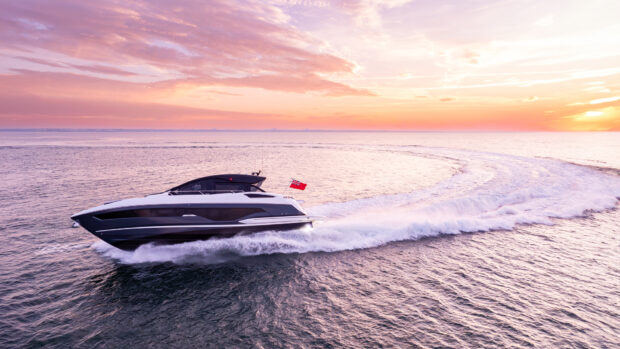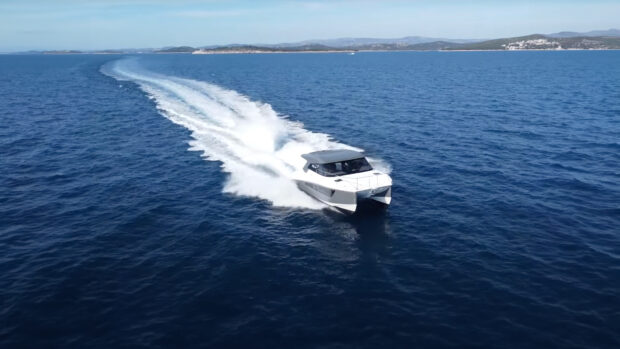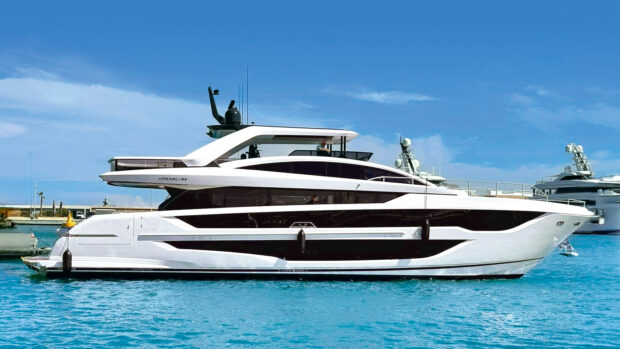Our racing expert laments the downfall of the Venture Cup. Where did it all go wrong?
The cancellation of the Venture Cup race between London and Monte Carlo was a huge tragedy, an opinion I know shared by many who remember the halcyon days when offshore racing really was offshore.
Many reasons have been given for its cancellation. The Royal Yachting Association (RYA), which acts as national authority for the sport, finally pulling the carpet after claiming its £20,000 insurance fee had not been paid by the due date and that certain stopping ports along the way hadn’t given final agreement.
Despite this, four stalwart crews using three RIBs and a monohull, set off from London on the scheduled starting date. At time of writing they had reached northern Spain without any serious mishap, looking after each other in a true Corinthian manner.
I cannot understand why the RYA insurers demand such a high premium. As far as I am aware – and my memory goes back to the beginning of offshore racing – there hasn’t been a serious claim of liability resulting from an event held out at sea. Instead, most have come from neck and neck circuit racing and this includes inshore circuit racing held on salt water such as P1, Offshore Circuit Racing (OCR) and ThunderCats, although as far as I know the latter are still claim free.
The RYA Insurance brokers would do well to separate the liability between the two sports for the two separate sports they certainly are. Not only does the association, and indeed the Union Internationale Motonautique (UIM) – the world governing body for powerboating, charge hefty calendar fees, it tends to add its own margins to cover office and staffing costs. Insuring genuine offshore racing with its claim free history would surely reduce premiums considerably. After all, who insures and what are the costs of sailing events such as Cowes Week and those held by the Royal Ocean Club like the Fastnet?
I’m not going to argue with this but in my experience (and not many pundits from the early 1960s are still alive!) there hasn’t been a single major offshore powerboat race organiser who hasn’t taken enormous flack and this includes Aidan Foley, the current incumbent. It’s a wonder they still bother.
I well remember the late John and Hilary Chitty who virtually organised the first London to Monte Carlo race in 1972 on their own only to be criticised for their efforts. They were accused of milking the funds, which hardly existed, were told the event was an impossible challenge and there wasn’t a crew willing to take part.
All this was shouted at John during a very raucous meeting seven days before the race was due to take place. He simply replied he would be on the start line at 10am on the due date, turned his back and left his critics still arguing.
I was the appointed RYA Observer and a few days later witnessed the start of what was to become the greatest offshore powerboat race of all time, not one of the earlier dissentients missing the line-up.
Twelve years passed before Tim Powell, under the banner of UKOBA, worked his backside off organising the second Round Britain race in 1984. He achieved a successful event despite a minimum level of financial sponsorship but this didn’t stop some competitors and RYA officials complaining about certain aspects of organisation. An almost comical aspect of this was that none would have the ability or indeed willingness to become personally involved and do his job.
The same applied to Mike Lloyd with his 2008 Round Britain. Again, many of those entered questioned his ability to stage the race, few offering personal help. It went ahead regardless surprising the earlier doubters but his attempt to revive the London to Monte Carlo in 2013 was not as lucky and had to be abandoned.
Mike had two problems; he tried to handle the organisation without serious help, which included visiting all the proposed stopovers along the European coastline. He had to meet local authorities controlling sea areas to gain their clearance along the route. Perhaps more important he needed to attract serious financial sponsorship. His 2008 Round Britain being rescued at the last minute by an injection of funds from Fiat, keen to publicise its new range of marine diesels.
Sponsorship is a vital ingredient these days for any serious powerboat race particularly those in the offshore sector. Even inland circuit racing held within a few metres of its spectators no longer attracts the financial support it did in the 1960s and 70s.
One of the main reasons is lack of media interest. Even the boating press no longer sees powerboat racing as having a worthwhile readership and without the support of the specialised press the national sporting press certainly won’t give column inches to a subject dismissed by the guys in the know. And without national coverage there’s little chance of TV, particularly news items.
It seems everything today as regards sponsorship and media interest centres on football, a game I personally find little time for. However sports with an element of adventure do attract attention and long distance offshore racing such as a London to Monte Carlo or London to St.Petersburg (a possibility being discussed) may well turn media opinion in its favour. After all, long distance yacht racing still remains in the public eye. Why not offshore powerboats?
Subscribe to the print version of MBY
Subscribe to a digital version of MBY











